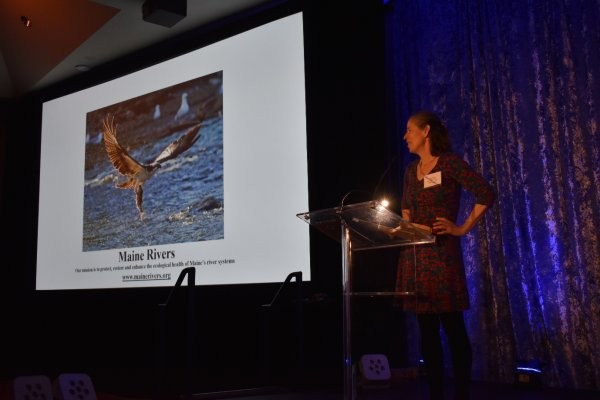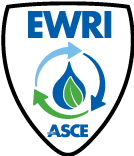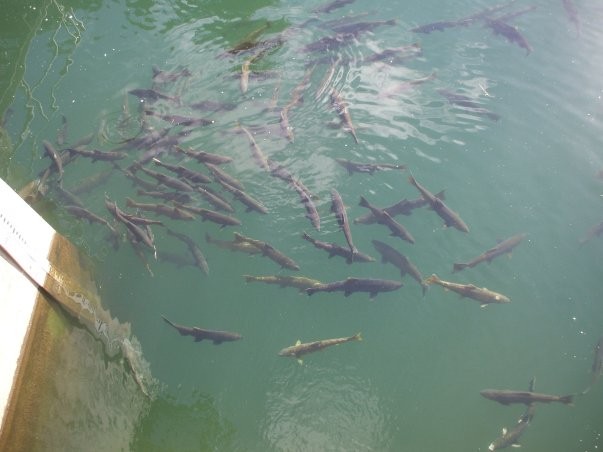
The life cycle of migratory fish, such as a salmon, is amazing. A salmon lays eggs in freshwater gravel beds to hatch. Offspring grow up in freshwater streams and then leave the river to the salty ocean. Juveniles grow in the ocean and then return as adults to swim upstream to their natal freshwater streams and rivers to lay eggs, starting the cycle again. Salmon undergo remarkable changes with their gills and kidneys to quickly adapt from fresh water to salt water (smoltification), and vice versa to return to freshwater. Salmon have also evolved other impressive abilities to avoid predators, find cool water, leap instream obstacles, and swim through fast jets of water. However, there are road crossings, diversions, and dams that are barriers to the migration of these threatened and endangered fish. Without salmon and other migratory fish, there are huge losses to fisheries, to resource exchange between the ocean and inland systems, and to cultural values for Indigenous Peoples.
Given the importance of these migrating fishes (salmon, eels, others), the Joint Committee on Fisheries Engineering and Science was established in 2010 under the EWRI Hydraulics and Waterways Council to improve fish passage and habitat in waterways. As Civil Engineers, we are tasked with projects that interact with the environment and natural processes, finding a balance between human development and long-term sustainability of waterways. We manage the interactions of abiotic and biotic forces to reconcile the needs of natural infrastructure and human infrastructure.
Joint Committee History
The Joint Committee originated in 2010 as an ad hoc initiative per the request of Rollin Hotchkiss, past President of EWRI, to develop a Fish Passage Conference and to link EWRI to AFS-BES to reach a broader network of professionals. Serendipitously, the University of Massachusetts, Amherst (UMASS) was also developing a Fish Passage Conference. Thus, the Joint Committee and UMASS joined forces to organize and present the first Fish Passage Conference in 2011 at UMASS Amherst. Since then, the Joint Committee has grown the local Fish Passage conference to an international event with state-of-the-art science from academia and the professional community. The conference has visited four continents, including North America (2011 to 2025 intermittently), Europe (2015), Australia (2018), and most recently China (2025).
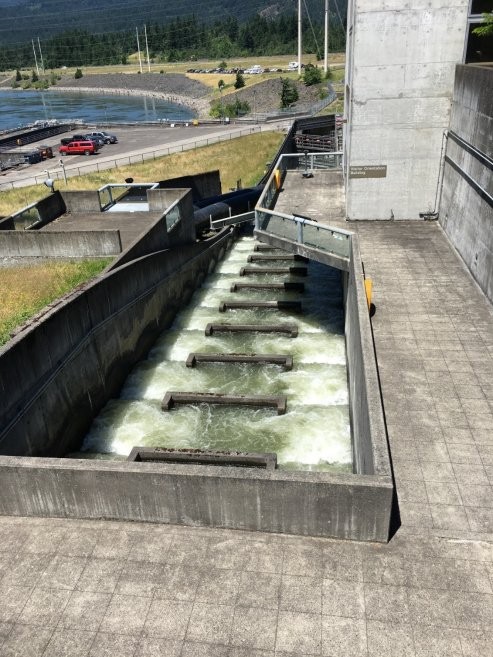
The ‘Joint Committee’ was named to recognize a partnership between EWRI and the Biological Engineering Section of the American Fisheries Society (AFS-BES). Per EWRI goals, the committee provides a nexus between engineers in EWRI and ASCE, biologists within AFS-BES, and other professionals, with the goal to create long term solutions to multi-objective projects in waterways.
Specifically, the mission of the Joint Committee is to: foster continued communication and promote joint fish passage efforts, with the backing of both the American Society of Civil Engineers' Environmental and Water Resource Institute (ASCE-EWRI) and the Bioengineering Section of AFS (AFS-BES).
The Joint Committee has also grown other successful task groups. Here are more detailed summaries:
Fish Passage Conference
The Fish Passage conference dates back to 2011 and brings together engineers, biologists and others with interests in ecological connectivity and fish passage. The conference mission is to advance the science and practice of fish passage by providing a forum where researchers, managers, practitioners, and policy makers can share ideas, experiences, and advances. The conference emphasizes integrating cutting edge biology, hydraulics, hydrology, and geology with engineering design and river management to address complex questions on river restoration. The next Fish Passage Conference will be held from May 4 to May 8 in 2026, at the University of California, Davis and will include workshops, trainings, plenary sessions, and breakout sessions. A call for sessions closes on October 31, 2025 and a call for papers opens November 17, 2025. Learn more here.
Distinguished Project Award for Fish Passage and Career Award
In association with the conference, the Joint Committee also presents the Distinguished Project Award for Fish Passage. We invite nominations for projects that show innovation, technical excellence, and success in ecological gain for fish passage. Past winners included river and dam projects internationally, all of which demonstrated outstanding success and innovation in fish passage. Nominations are encouraged for projects that inspire others and are shared widely in professional papers or presentations. Nominate a project and learn more about past winners.
In addition to the Project Award, the Joint Committee presents a Career Achievement Award at the Fish Passage Conference. This award recognizes an influential professional whose contributions to the field of fish passage have notably enhanced fisheries resources. The link above for the Project Award provides more information.
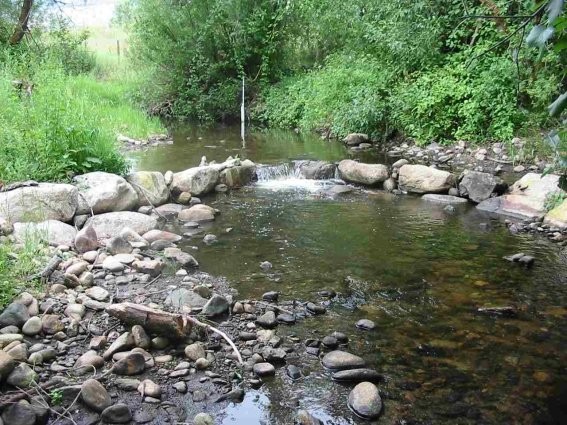
Fish Passage Webinar Series
Since 2013 the Joint Committee has successfully presented about 50 quarterly webinars on river restoration, dam removal, sediment transport, project planning, and fish passage. There is no fee to attend or watch the recordings, making the presentations accessible to all. The webinar is supported by committee members, volunteers, resources from AFS, and various companies. The next webinar is in December 2026. Find out more on past webinars, recordings (YouTube channel), and register for upcoming webinars.
The Joint Committee invites all interested in fish passage to explore the resources we have developed and attend future events. We also invite new members to the committee. The joint committee is on LinkedIn as the group “Joint Committee on Fisheries Engineering and Science”.
Here are additional web links to explore:
Feel free to reach out to the Joint Committee and thanks on behalf of the fish.
